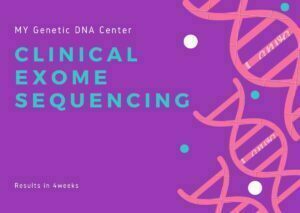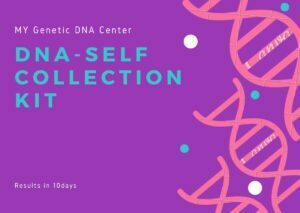Introduction on BETA HCG used for 24-HOUR URINE Collection:
The BETA HCG Total Quantitative test using 24-hour urine collection measures the exact amount of human chorionic gonadotropin (hCG) the body excretes over a full day. The placenta primarily produces hCG during pregnancy, and it plays a crucial role in maintaining early gestation by supporting progesterone production and the corpus luteum. Unlike standard urine or serum tests that provide a single point measurement, the 24-hour urine collection captures all urine produced within a day, offering a more comprehensive and integrated assessment of total hCG excretion. This method minimizes variability caused by hydration, timing, and urine concentration, providing a reliable measurement that can be critical for monitoring pregnancy progression, detecting abnormal pregnancies such as ectopic or molar pregnancies, and evaluating hCG-producing tumors like gestational trophoblastic disease or certain germ cell cancers.
The test involves careful collection of all urine over a 24-hour period, proper storage, and timely submission to the laboratory for analysis. By measuring total hCG output, clinicians can track hormone trends, assess the effectiveness of treatments, and make informed decisions regarding patient management. The BETA HCG 24-hour urine test is particularly valuable in complex clinical situations where precise monitoring of hormone levels is necessary, providing insights that guide both diagnosis and therapeutic strategies while ensuring patient safety and optimal care outcomes.
What is the BETA HCG Total Quantitative, 24-Hour Urine Test?
The BETA HCG Total Quantitative, 24-Hour Urine Test is a laboratory examination that precisely measures the total amount of human chorionic gonadotropin (hCG) excreted in the urine over a complete 24-hour period. Unlike qualitative or single-sample tests that simply detect hCG, this quantitative test measures the hormone precisely, giving a detailed picture of its production in the body. The placenta primarily produces hCG during pregnancy, and it plays a vital role in supporting early gestation by maintaining the corpus luteum and stimulating progesterone secretion. Measuring hCG in urine over 24 hours allows for a more accurate assessment because it accounts for natural fluctuations in hormone excretion due to hydration levels, kidney function, and daily activity.
This test is especially valuable in monitoring early pregnancy, evaluating suspected ectopic or abnormal pregnancies such as molar pregnancies, and tracking the effectiveness of treatment for hCG-producing tumors like gestational trophoblastic disease or certain germ cell malignancies. Patients collect all urine over a 24-hour period in a clean container, and the laboratory then stores and analyzes it to determine total hormone excretion. By providing a comprehensive measurement, the BETA HCG 24-hour urine test helps clinicians monitor pregnancy progression, detect abnormalities, and guide medical management with greater accuracy than single-point tests, ultimately improving diagnostic confidence and patient care outcomes.
Why is the 24-hour urine collection method used for BETA HCG testing?
Doctors use the 24-hour urine collection method for BETA HCG testing to obtain a comprehensive and accurate measurement of the total hormone excreted over an entire day, rather than relying on a single spot urine sample that may vary in concentration. hCG levels can fluctuate throughout the day due to factors such as fluid intake, diet, and kidney function, which can affect the reliability of short-term measurements. By collecting all urine produced over 24 hours, clinicians obtain an integrated assessment of hormone production, allowing for more precise monitoring of pregnancy progression, early detection of abnormal pregnancies such as ectopic or molar pregnancies, and evaluation of hCG-producing tumors like gestational trophoblastic disease or certain germ cell cancers.
This method reduces the risk of misinterpretation that can occur with spot samples and provides a clearer picture of the patient’s endocrine status. Additionally, the 24-hour collection is particularly useful in cases where serum hCG measurements are inconclusive or when tracking treatment response in patients with abnormal hCG production, ensuring that clinicians can make informed decisions about patient management and therapeutic interventions. Overall, the 24-hour urine collection enhances the reliability and clinical utility of BETA HCG testing, offering a valuable tool for accurate diagnosis, monitoring, and follow-up. The 24-hour urine collection captures all urine produced in a full day, providing a comprehensive overview of total hCG excretion. This method reduces variability caused by factors such as fluid intake, time of day, and urine concentration, which can affect spot urine tests.
By analyzing the cumulative hormone output over 24 hours, doctors can obtain a more accurate and reliable measurement, which is especially helpful in complex clinical situations, such as monitoring high-risk pregnancies, assessing molar pregnancies, or tracking hCG levels after treatment for gestational trophoblastic disease or certain tumors.
What conditions or situations warrant a BETA HCG Total Quantitative, 24-Hour Urine Test?
This test is often ordered in several clinical contexts:
Monitoring early pregnancy – To confirm that hCG levels are rising appropriately, which can indicate a viable pregnancy.
Assessing suspected ectopic pregnancy or miscarriage – Abnormal or plateauing hCG levels may suggest complications.
Evaluating molar or hydatidiform pregnancies – Extremely high hCG levels can indicate abnormal placental growth.
Monitoring treatment of gestational trophoblastic disease or certain cancers –
Confirming menopause or ovulation issues – In rare cases, hCG measurements may help in reproductive endocrinology assessments.
How is the 24-hour urine sample collected for this test?
The 24-hour urine collection for BETA HCG measurement requires patients to collect all urine produced within a full day to ensure an accurate assessment of total hormone excretion. The process usually begins in the morning, with the first urine of the day discarded and all subsequent urine collected over the next 24 hours, including the first urine of the following morning. Patients are provided with a clean, labeled container, and it is essential to keep the sample refrigerated or on ice throughout the collection period to preserve hormone stability. Patients must properly document start and end times, avoid contamination, and ensure that no urine is missed, as any errors can compromise result accuracy. They should maintain their usual diet and hydration and avoid strenuous activities that could significantly alter urine output.
How do doctors interpret the results of the BETA HCG 24-hour urine test?
Laboratories report the results of the BETA HCG 24-hour urine test as the total amount of hCG excreted over 24 hours, usually in milli-international units per 24 hours (mIU/24h). Reference ranges depend on laboratory standards, the patient’s age, sex, and physiological condition, such as pregnancy stage. In a normal early pregnancy, hCG levels rise steadily and peak around the first trimester. Abnormally high or low levels may indicate multiple gestation, ectopic pregnancy, miscarriage, molar pregnancy, or hCG-producing tumors. Doctors typically interpret urine hCG levels in conjunction with serum hCG measurements, clinical examination, and imaging studies to provide a comprehensive assessment, ensuring accurate diagnosis and effective monitoring of treatment or pregnancy progression.
What are the advantages of using the 24-hour urine method for hCG measurement?
The 24-hour urine collection offers several advantages over spot urine or serum tests. By measuring total hormone excretion over an entire day, it accounts for fluctuations in hCG levels caused by hydration, fluid intake, or kidney function. This method provides a more integrated and reliable assessment, especially in high-risk pregnancies, abnormal gestations, or in patients with hCG-producing tumors. It also helps clinicians track treatment response, detect recurrence of tumors, and monitor complex conditions that require precise hormonal evaluation. The method reduces errors associated with single-point measurements and offers a valuable tool for long-term monitoring of patients whose hormone levels may vary widely throughout the day.
Are there any limitations?
Inconvenient collection process – Requires patients to collect all urine over 24 hours, which can be cumbersome and prone to errors.
Risk of missed or contaminated samples – Any missed urine or contamination can compromise the accuracy of results.
Influence of kidney function – Conditions affecting urine output or kidney function can alter hCG excretion and affect interpretation.
Slower results compared to serum tests – Analysis takes longer than a single-point blood test, which may delay urgent clinical decisions.
Patient compliance dependent – Accurate results rely heavily on the patient following instructions precisely for collection and storage.
Interpretation complexity – Requires consideration of age, pregnancy stage, hydration status, and medical history to avoid misdiagnosis.
Limited availability – Not all laboratories may perform 24-hour urine hCG testing, reducing accessibility in some areas.
Variability in reference ranges – Differences between labs can make it challenging to compare results across facilities.
What precautions should patients take when undergoing the BETA HCG 24-hour urine test?
Collect all urine for 24 hours – Patients should collect every urine sample produced during the 24-hour period, including the first urine of the following morning.
Discard the first morning urine – Start the collection by discarding the first urine of the day to begin timing accurately.
Use the provided container – Collect urine in the clean, labeled container supplied by the laboratory.
Refrigerate or keep on ice – Store the container in a refrigerator or on ice throughout the collection period to preserve hormone stability.
Avoid contamination – Ensure no external substances (soap, fecal matter, or cleaning agents) enter the collection container.
Record start and end times – Accurately note the beginning and ending times of the collection to ensure correct 24-hour measurement.
Maintain normal hydration and diet – Follow usual fluid intake and diet habits to avoid altering urine concentration.
Avoid strenuous activity – Excessive physical exertion can influence urine output and hormone excretion.
Inform healthcare providers about medications –Patients should report all medications or supplements they are taking, as some can affect hCG levels.
Follow instructions carefully – Adherence to collection guidelines is essential to ensure accurate and reliable results.
How does this test help in patient care?
The BETA HCG 24-hour urine test provides a comprehensive and reliable measurement of total hormone excretion, which aids clinicians in monitoring early pregnancy, detecting abnormal gestations, and tracking hCG-producing tumors. By offering precise quantitative data, the test helps doctors assess treatment effectiveness, detect complications early, and make informed decisions regarding patient management. The test helps clinicians reduce the risk of misdiagnosis, ensure accurate follow-up, and intervene promptly when they detect abnormal hormone levels. Overall, the test plays a critical role in patient care by providing essential hormonal information that supports safe, effective, and personalized medical management, improving outcomes for both pregnant patients and those with related medical conditions.




